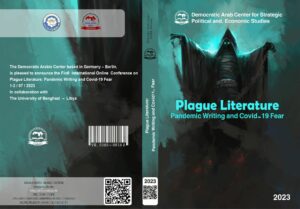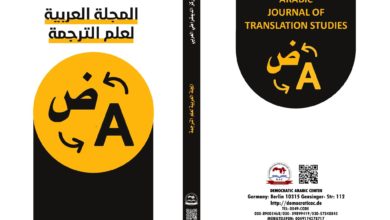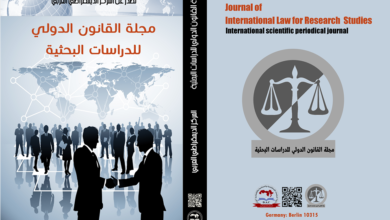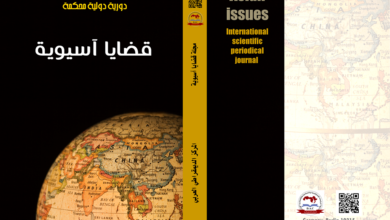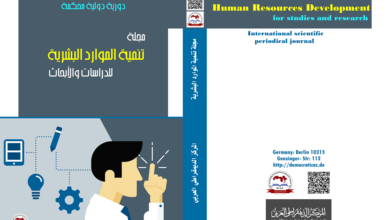Plague Literature: Pandemic Writing and Covid-19 Fear
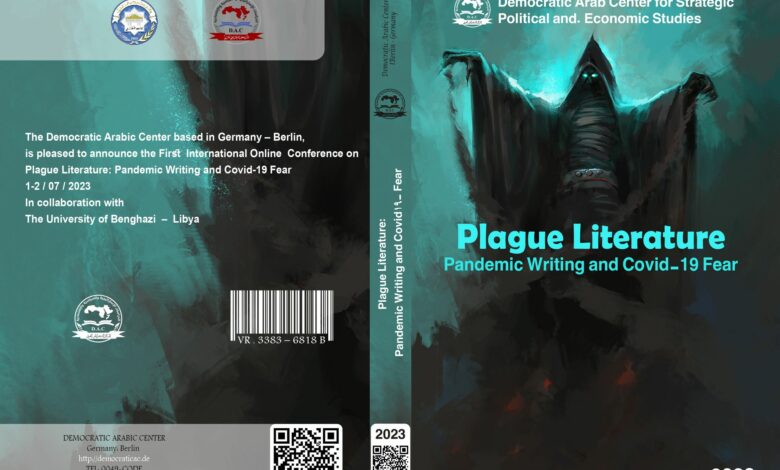
The #Democratic_Arabic_Center based in Germany – Berlin, is pleased to present the work book of the
Plague Literature: Pandemic Writing and Covid-19 Fear
1- 2 / 07 / 2023
In collaboration with
The University of Benghazi – Libya
– ” Download version ” pdf
Plague Literature Pandemic Writing and Covid-19 Fear
First edition “2023” – Book – Plague Literature: Pandemic Writing and Covid-19 Fear
The current coronavirus disease (COVID-19) pandemic has caused fear, stress, and anxiety among adults and children. However, learning that the outbreaks of infectious diseases, including smallpox, typhus, Spanish flu, and others is not new to humanity may be somewhat relaxing. Human sciences in general and literature in particular have always written about and responded to plagues and pandemics as early as Athenian Thucydides. This latter described The Plague of Athens (429-426 BCE) in a section in his narrative, History of the Peloponnesian War for “people to study in case it should ever attack again, to equip themselves with foreknowledge so that they shall not fail to recognize it” (Grant 77). Thucydides was not actually mistaken because epidemics and pandemics are actually still a reality for humanity. Actually from the time of Thucydides to Camus, the good news to know for sure is that pandemics do end. Here comes the role of Plague Literature, which exploits the joke that plagues and infectious diseases are made out of the countless human attempts to stop them. This kind of literature is indeed what humans need. This is because during plague and pandemic years, “we need less propaganda and more poetry” (Virginia Heffernan)
Plagues continue to threaten and kill humans and literature continues to chronicle plagues’ chaos and horror
In literature, the term ‘plague’ is used to designate any infectious epidemic that threatens humans and social order. Although the current coronavirus disease (COVID-19) is referred to as a‘pandemic’, it is also regarded as a plague. The outburst of coronavirus pandemic conjures up images of chaos, death, and loss in literary works that depict plagues. The Great Plague of Marseille in 1720 fired the imagination of Daniel Defoe and gave birth to his A Journal of the Plague Year in 1722 that dealt with the London outbreak of 1664–’65. In Defoe’s work, Mary Shelley’s The Last Man (1826), Edgard Allen Poe’s “The Masque of the Red Death” (1842) Albert Camus’s The plague (1947), and Gabriel García Márquez’s Love in the Time of Cholera (1985) plague is not merely a medical disease. On writing about plagues, Susan Sontag argues, “feelings about evil are projected onto a disease”. Plagues have haunted the imagination of writers who saw them as a fertile theme to promote or oppose social, political, and cultural issues. Plague can be a metaphor for an unhealthy country or evil individuals. It can also be portrayed as either God’s punishment or the outcome of man’s destruction of nature. Plague literature helps humans transcend the literal form of the plague and connect it with the inner self to face its darkest secrets
Plague Literature can be portrayed through Disaster fiction and Catastrophe narratives which define the recent time apocalypse that might be a natural disaster, a scientific mistake or a killing virus which brings humanity and the writers’ imagination into a final doomsday. Corona Virus lockdown is a new challenging setting for today’s plague literature. Thence, many authors like the British Naomi Alderman preferred to stop writing her pandemic novels like The Survivals that she started in 2017 and shifted her narrative objective to Corona virus circumstances questioning human aspects like family relationships, character romance ties and social meetings
This conference will also be a zoom-in into the difference between the pre-covid and the post-covid fictions highlighting the revision of the various literary concepts such as life and death, cure and character survival, and religious doctrine and belief. Furthermore, the event will be a discussion of the Pandemic as a literary theme that may restructure today’s arts and reshape literary writing. It can even question literature’s classic function in alleviating the readers’ historical fear and narrative tension. Can today’s pandemic/plague literature offer a narrative relief or imaginary escape for its audience or does it just stress the catastrophe casting humanity into the unknown
Index of Issue
| Author(s) | Title | Page Range | |
| 1 | Françoise Besson | Literature against Fear | 11-22 |
| 2
|
Selma Chouchane | T. S. Eliot’s The Waste Land: Frightening Visions of the Destiny of Mankind | 23-36 |
| 3 | Ali Rabah Nouria and Raouti Rabha
|
The 1001 Nights of Confinement Project: Fostering Connection and Creativity during the COVID-19 Pandemic | 37-52 |
| 4 | Fatima Messaoudi | Psychological Factors of Covid 19 on Algerian Health Workers | 53-62 |
| 5 | Yousra Terbeche | Voicing Female Characters as they Find their Apocalyptic Sweet Home | 63-76 |
| 6 | Slimani Mariya and Mehiri Ramdane | Exploring the Social and Political Consequences of Plague through Francis Lawrence `s Film ‘I Am Legend’ (2007) | 77-83 |
| 7 | Khawla BENDJEMIL
|
Unveiling the Apocalypse: Lawrence Wright’s The End of October as a Paradigm of Plague Literature and Societal Dystopia | 84-91 |
| 8 | Chahira Zernadji
|
The Psychology of Creativity and Its Interpretive Dimension
(Confinis) By Salim Betka as a Model |
92-97 |
| 9 | Imane Chekhnaba
|
Questioning Human Romance during Covid-19: A Psychoanalysis of Layliat Ramada by Wassini Laaradj | 98-105 |
Publisher : Democratic Arabic Center For Strategic, Political & Economic Studies

